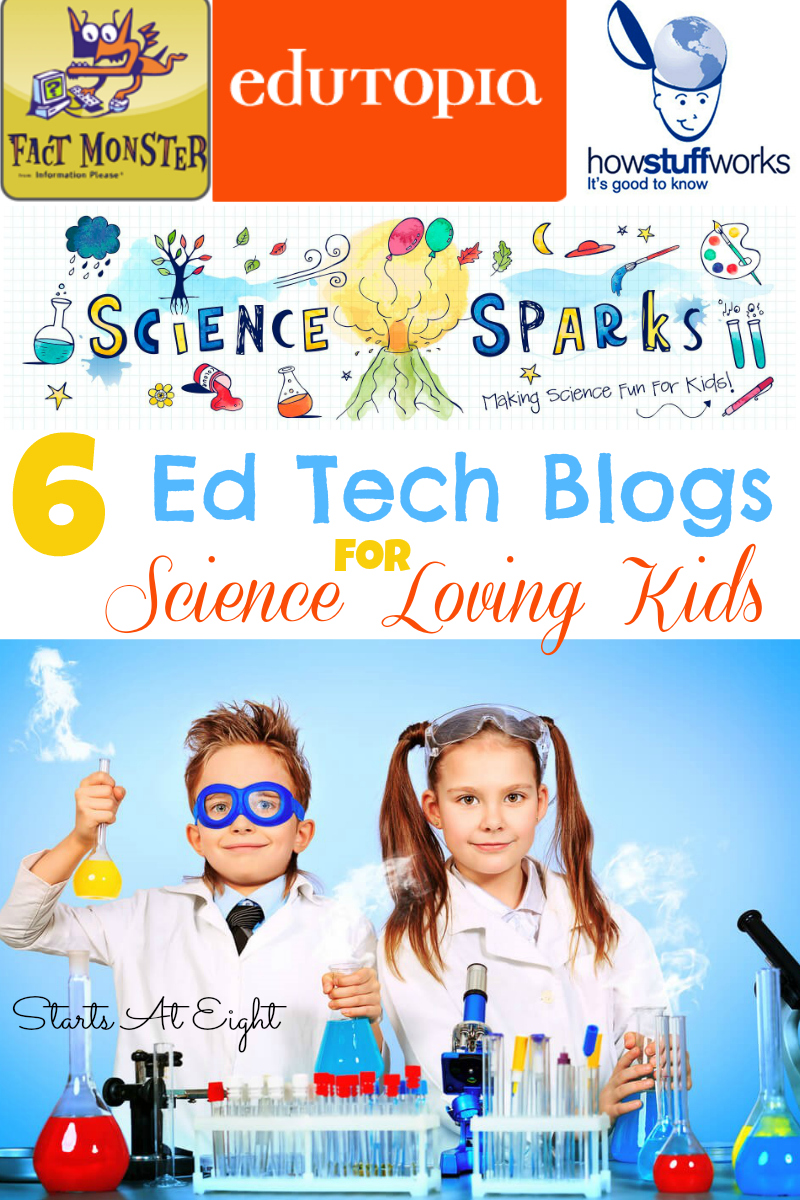6 Ed Tech Blogs for Science Loving Kids
When we are little, our mind is like a sponge. Add this to a natural curiosity about any odds and ends in the world, and kids are walking memory sticks that consume any kind of information they come in contact with.

It is important to redirect your children’s learning enthusiasm to useful sources of information at an early age. Especially when it comes to the Internet, there are many trivial websites where you can waste precious hours on useless entertainment. However, there are some blogs where fun and tech education meet together, and their result is just amazing! Today, we will unravel the 6 main tech ed blogs for science loving kids.
6 Ed Tech Blogs for Science Loving Kids
1. Edutopia
The filmmaker George Lucas decided in 1991 to create an educational foundation. Here, experts can study innovative methods through which to connect the curious minds of children to the depth of information. He believed that kids find it hard to unleash their total capacity during classes, so teachers should adopt certain techniques to guide them on the right path.
This is how the George Lucas Educational Foundation began. Edutopia is the blog where such researched teaching approaches are made public. Here, parents can learn and apply project-based teaching, social and emotional teaching, and how to inspire educational leadership, technology integration, and comprehensive assessment.
2. The Ed Tech Roundup
This blog delivers weekly posts that decipher the latest technologies that can connect the teachers with students. Behind this blog stand an award-winning technology teacher, Michael Karlin, and he also tackles subjects such as lesson plans, reviews of the latest technology news, and professional development ideas.
On Ed Tech Roundup you can learn how to create animated presentations, the latest science materials with assignments, how to design dynamic and interactive lessons or even digital lessons with different apps.
3. FactMonster
FactMonster is a complex blog that covers any main subject taught in schools, especially science. This section handles different subjects. In their turn, they have subsections that generously treat each of the aspects that together form the main subject. These subjects are Biology, Earth Sciences, Environment, Energy, Nature, Plants, Animals, Dinosaurs, Inventions, Chemistry, Physics and more.
We especially enjoy the Health and Body subject. Besides the fact that it is educational, you can teach the kids how to adopt healthy life choices that round up the “Mens sana in corpore sano” concept, where body and mind cannot work efficiently without one another.
Only experts can add and edit new content here, so there’s no danger of misinformation coming from suspicious sources. The informational materials are combined with fun facts and useful tools such as a dictionary, encyclopedia, thesaurus, almanac, atlas, and timelines.
4. Science-Sparks
This blog makes its mission to avoid any kind of boring materials and heads right to the fun part of teaching science. The creators dedicate the website to children of up to 11 years old, and they come up with ingenious ideas of scientific experiments that you can perform together with your kids.
They can easily learn about the properties of materials by building six different kinds of Three Little Pig houses, how to create an unbreakable egg, and even to recreate a human lung with common household things and watch how it works! It is truly an amazing blog where kids can develop analytical thinking skills.
5. How Stuff Works
Children are always full of questions. And when they get their answer, they ask questions about an element of the previous answer. And this is how an avalanche of question marks is created. Sooner or later, every parent gets buried under a thick layer of unanswered questions.
However, the How Stuff Works blog is exactly the source of information the children need when they have nagging questions that don’t let them focus on anything else. How does radar work? Can you shatter a glass with a high note? How does electricity work? Can a telescope see through time? Finally, the question chains can receive a closure, and the world will seem more accessible and easier to control for the little people.
6. The Naked Scientists
The power of podcasts is marvelous, especially for learning. There are three types of learning styles: visual, auditory, and kinesthetic. The Auditory Learning Style means catching up concepts and grasping them just by hearing comprehensive information.
The Naked Scientists deliver weekly podcasts that answer scientific questions. The creators use enthusiasm, and they don’t hesitate to contact experts in different fields to present their podcasts in a fun and educational way. They do not exceed five minutes, so any parent can easily squeeze these precious bits of information among their lessons.
They also host a Science Forum, and there are tens of thousands of debated topics. Here, you can find interesting questions that your child will surely be curious enough to find them an answer on his or her own.
So, these are the 6 ed tech blogs for science that can help you nourish your child’s passion for science. These websites cover enough material and teaching technologies to educate your child thoroughly so don’t hesitate to use them daily.
Author Bio: Colorado based freelancer, Dustin Ford, loves gadgets and marketing. His articles with tips and tricks appeared in numerous publications, but he remembers that the first website he wrote for was Tech Exploring.
Image source: 1



April 27, 2022 @ 2:43 am
Such A Wonderful Info In This Blog Thanks For Sharing THis